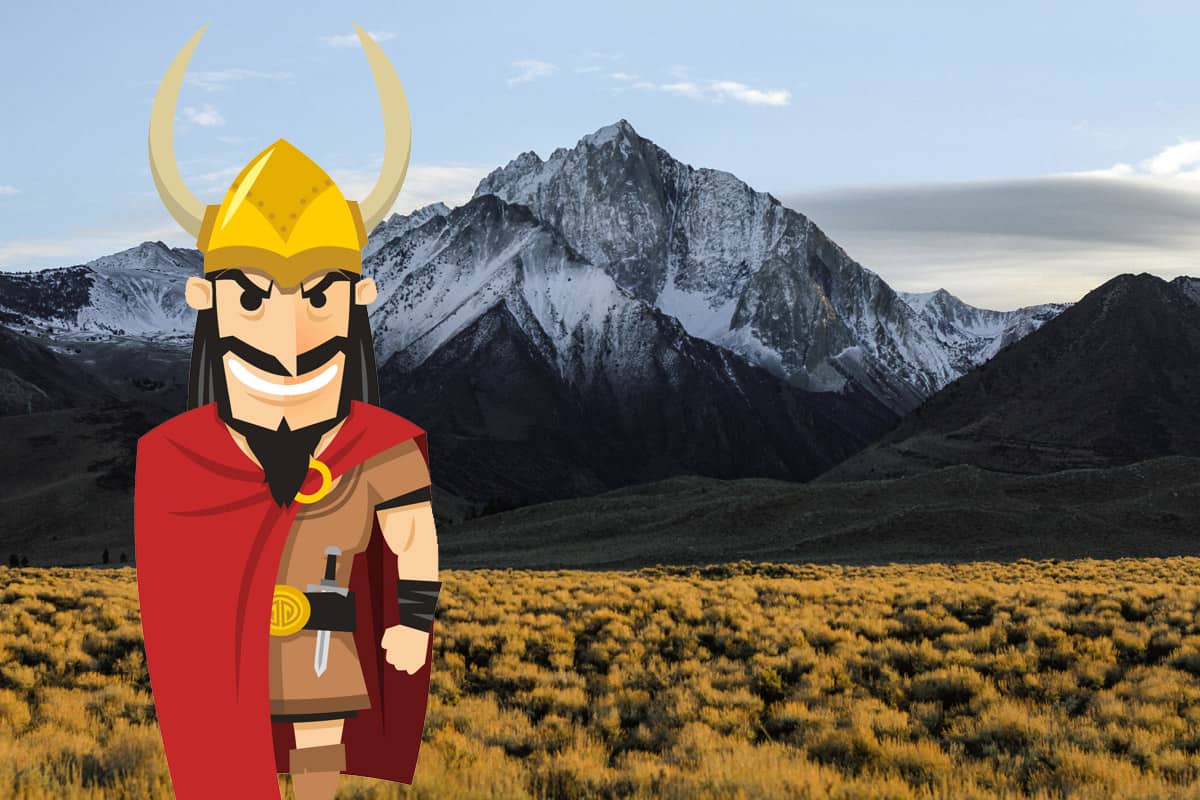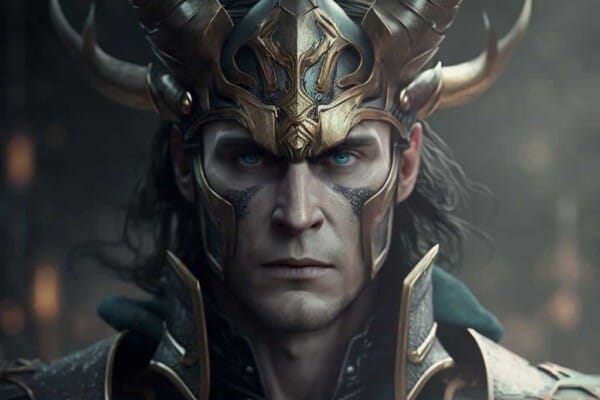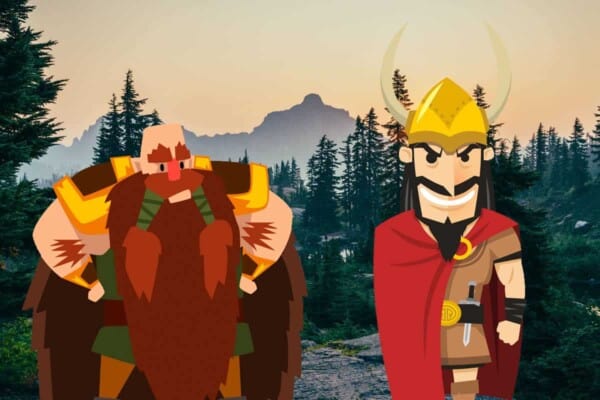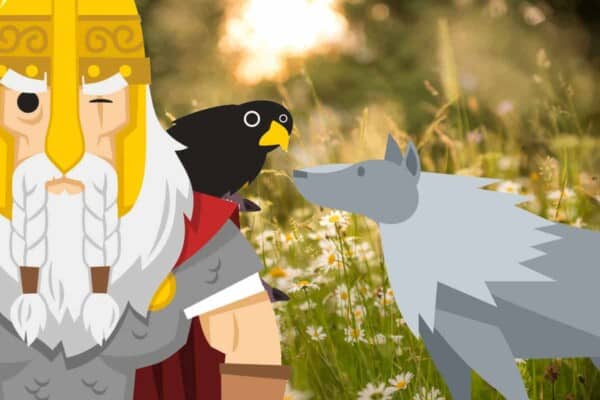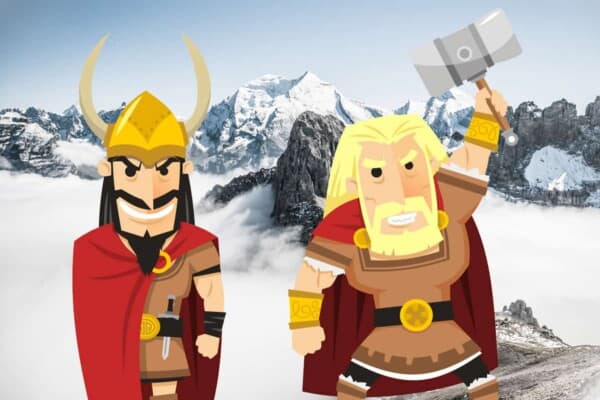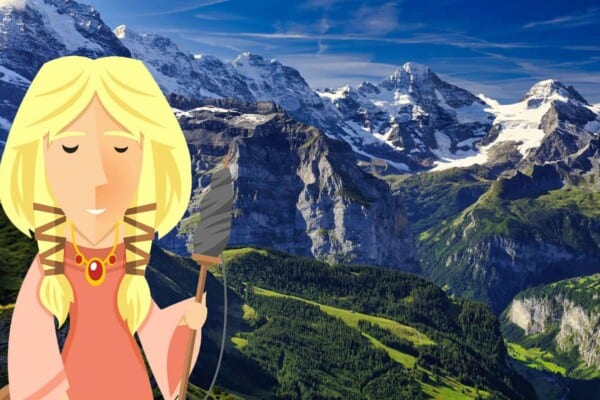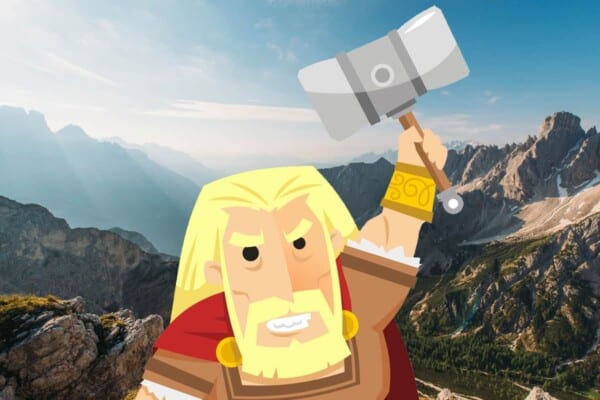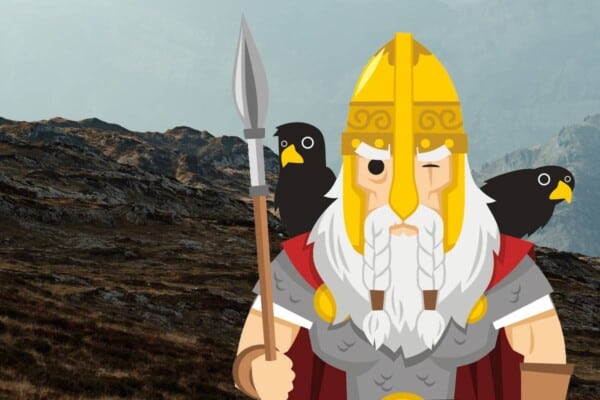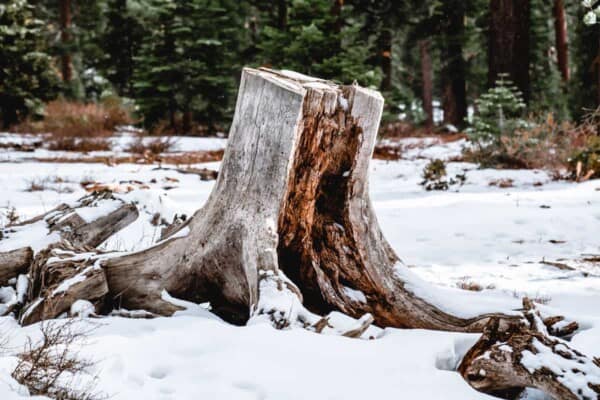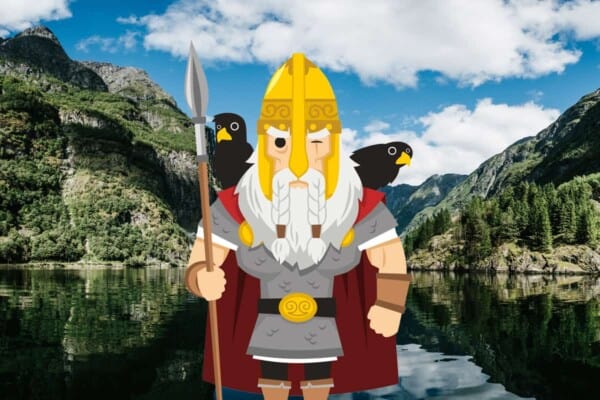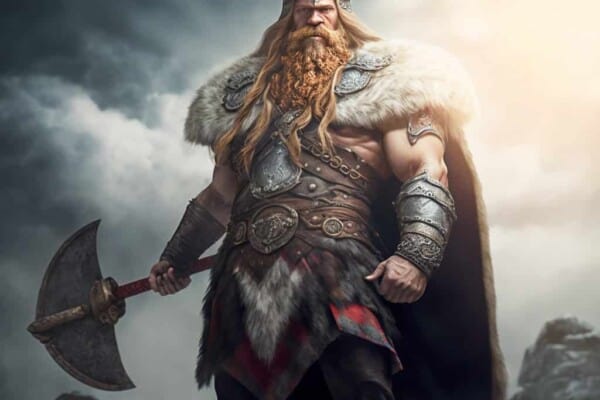Many people might be familiar with the trickster god Loki through the prevalence and the continuing popularity of Norse mythology in fiction, movies, video games, and several series on television. But what if I said Loki isn’t the “Odinson” you are familiar with? Loki is more of a mystery than we all might think.
Was Loki a Frost Giant?
It is complicated since there is no direct reference to “frost giants” but the term “giant” is mentioned frequently in Norse mythology. Giants, however, are synonymous with the Jötunn or Jötnar which are ambiguous entities that belong to Jötunheimr, the realm of giants. Loki, much like the Æsir god’s Odin and Thor, is a descendant of Jötunheimr.
The 13th century Old Norse work, Prose Edda by Snorri Sturluson states Loki as being the son of the Jötunn, Farbauti. And according to Snorri Sturluson, Loki’s heritage from his Æsir mother, Laufey, “enumerated” him among the Æsir gods under the All-Father, Odin. Loki’s mixed heritage of being half Æsir and half Jötunn rendered him unique as a god of Asgard.
What is the relationship between Loki and Thor?
In more modern interpretations and even popular culture, there seems to be this yin and yang relationship between Loki and Thor with the premise of both archetypal characters being familial. This notion of two brothers may stem from how Loki provokes or infuriates Thor with his ruse and deceit. Although, in the Prose Edda, it is argued that Loki is the stepbrother of Odin or more accurately, “blood-oath” brother. This would in turn make Loki, Thor’s foster uncle.
But the relationship between Thor and Loki is quite interesting. In the Poetic Edda by Snorri Sturluson, a collection of Old Norse poems, Loki is found slandering the pantheon of Æsir at a banquet hosted by Aegir, the god of the sea.
Loki was relentless with his insults and as Thor entered the banquet hall, he intervened. Thor tried silencing Loki by threatening him with his enchanted hammer, Mjöllnir. Loki remained belligerent and insulted Thor to the point where he threatened Loki to be sent to Hel. Loki leaves the banquet and out of fear of receiving the god’s wrath flees to the mountains.
Known for his shapeshifting, Loki turned into a salmon and swam in the mountain’s hollow of Franang’s Falls. Out of fear of the gods catching him, Loki swam downstream of the mountain. The gods found Loki’s hideout and discovered a fishing net that belonged to him. They devised a plan to catch the slippery Loki and punish him for his disobedience. After many attempts of trying to catch Loki with the fishing net, it was not until Loki sprung into the air from the water, and Thor himself caught Loki with his bare hands.
As the gods apprehended Loki, they took him to a desolate cave where he is shackled to a rock by iron chains and be tortured by a serpent whose venom will drip onto his skin causing him to endure agonizing pain until Ragnarok has commenced.
Are Thor and Loki mortal enemies?
When it comes to Loki as an antagonist among the Æsir gods, Thor does not clash as much with Loki other than those previous quarrels. One might argue that Loki was a true adversary to the god Baldr who happened to be Thor’s brother and son of Odin. Comparatively, Baldr is a dying and rising god much like Jesus Christ with his resurrection as well as his representation of purity, light, and fertility. Through meticulous manipulation, Loki prompted the death of Baldr which is fitting for a Satan-like figure to accomplish.
Baldr, although, is meant to resurrect from Hel and initiate a new world with the remaining gods who outlasted Ragnarok, an apocryphal occurrence with the promise of destruction as well as death among all gods, races, and realms. Baldr’s death was shown as a bad omen which motivated the events of Ragnarok. Consequently, Loki’s main adversary as prophesied during Ragnarok is Heimdallr, the watchman of the gods. Loki and Heimdall are fated to battle until they both defeat themselves while Loki’s children and army of Jötunn contend with the Æsir.
Why did Loki betray Thor and the other gods during Ragnarok? What was their fate?
When Loki was released from his shackles on the day of Ragnarok, he waged war on the Æsir as an act of vengeance for the suffering he endured. Loki’s children Fenrir, Jormungand, and Hel join Loki along with the Jötunn giants to pierce through Asgard. The children of Loki will eventually be responsible for the destruction of the nine realms.
- Fenrir – The most feared by the Æsir, was a monstrous wolf that was chained by the gods until Ragnarok. The gods intended to suppress Fenrir’s malevolent and destructive nature in hope that the prophecy of him devouring Odin in the days of Ragnarok will be prevented. Though the future was determined, and on the fateful day of Odin fighting the great wolf, Fenrir widened his immense mouth that reached the heavens and consumed the All-Father, killing him. Odin’s son Vidar inevitably killed Fenrir with all his strength and valor.
- Jormungand – The second eldest son of Loki, was an enormous serpent cursed by the gods to remain in the waters of Midgard, the realm of humans. Jormungand was so large he could coil around the Earth and reach his tail. He was Thor’s greatest adversary and together fought on many occasions. Their greatest battle, however, would certainly be their last. On Ragnarok, Thor and Jormungand brawl until Thor crushes the head of the vile serpent with his mystical hammer Mjöllnir. But before Jormungand died, he poisoned Thor with his venom. Thor took nine steps back after defeating Jormungand and collapsed in death.
- Hel – The goddess that controlled the dead, and ruled her own kingdom known as Helheim which subsequently was named after her. During the battle between the Jötunn and Æsir, she raised the deceased from Helheim to help fight alongside her father Loki against the gods.
As for Loki, he and Heimdallr battle during Ragnarok. According to the Prose Edda, Snorri Sturluson states that Loki and Heimdallr have unending hostility towards each other. Loki stole the Brísingamen necklace that belonged to the goddess Freyja which caused an uproar between her and the Æsir. When Freyja finds that her treasured necklace Brísingamen disappeared, Heimdallr is called upon Freyja to retrieve it.
They discover that the culprit who stole the necklace was Loki who had shapeshifted into a seal. Both gods contend over Brísingamen disguised as seals until Heimdallr collects Brísingamen and returns it to Freyja. This inevitably led to them fighting each other years later during Ragnarok as both gods ultimately kill one another as culmination of their previous feuds.
So, are the common beliefs and ideas of Loki correct?
Overall, there have been many misinterpretations and renderings of Norse mythology and its archetypical stories. The Loki and Thor we are typically introduced to in pop culture and fiction are depicted separately from their mythical counterparts. But Loki has been consistently shown to remain as an antagonist among the gods of Asgard. His status quo amongst all forms of literature and fiction present Loki as a shape-shifting trickster god who can be deceitful and will certainly be the evil rival representative of chaos against order.

